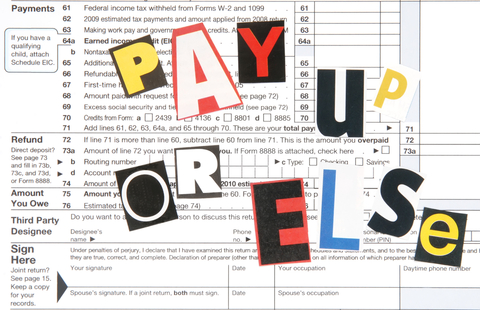 On January 1, Congress passed a bill to keep the government from leaping off the so-called "fiscal cliff" — a set of tax hikes so devastating that Washington insiders warned they would ricochet through the economy, plunge us back into recession, and possibly even send the earth spinning into the sun. That bill included raising the top marginal rate on taxable income over $400,000 ($450,000 for joint filers) from 35%, where it had stood for the last 12 years, to 39.6%.
On January 1, Congress passed a bill to keep the government from leaping off the so-called "fiscal cliff" — a set of tax hikes so devastating that Washington insiders warned they would ricochet through the economy, plunge us back into recession, and possibly even send the earth spinning into the sun. That bill included raising the top marginal rate on taxable income over $400,000 ($450,000 for joint filers) from 35%, where it had stood for the last 12 years, to 39.6%.
39.6% may sound like a lot today. But it's still really quite low, as far as top rates are concerned. Back in 1935, the nation was mired in the depths of the Great Depression. Inflation was 3.71% and unemployment stood at a whopping 21.7%. As for taxes, the top rate reached 79% on income over $5 million (roughly $85,672,000 in today's dollars). But — and this is a pretty big but — according to tax historian Joseph Thorndike, just one person actually paid that rate: billionaire John D. Rockefeller, Jr.





